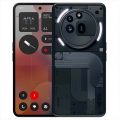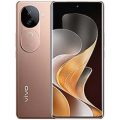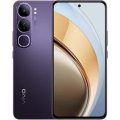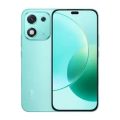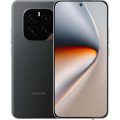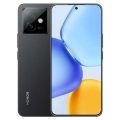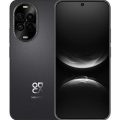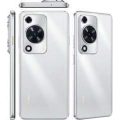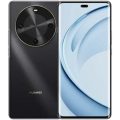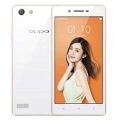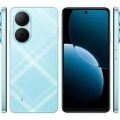Nothing Phone 3
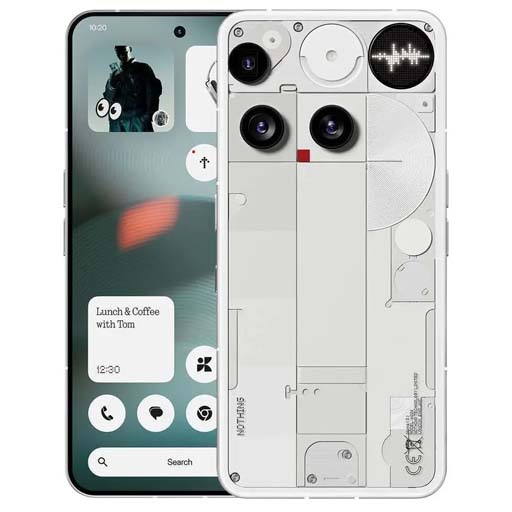

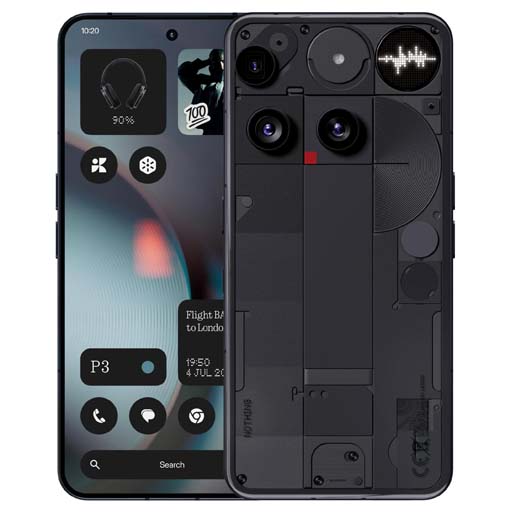

-
Released: 2025, July 15
-
Operating System: Android 15, up to 5 major upgrades
-
Display: 6.67" 1260x2800 pixels
-
Camera: 50MP 2160p
-
RAM: 12/16GB RAM Snapdragon 8s Gen 4
-
Battery: 5150mAh 65W 15W
Specifications
Prices
| Unofficial Unofficial |
12GB 256GB ৳1,10,000 |
| Global Global | $799 / €799 / £799 |
Launch
| Announced Announced | 2025, July 2 |
| Status Status | Available. Released 2025, July 15 |
Network
| Technology Technology | GSM / HSPA / LTE / 5G |
| 2G 2G |
GSM 850 / 900 / 1800 / 1900 |
| 3G 3G |
HSDPA 800 / 850 / 900 / 1700(AWS) / 1900 / 2100 |
| 4G 4G |
1, 2, 3, 4, 6, 7, 8, 12, 17, 18, 19, 20, 25, 26, 28, 30, 34, 38, 39, 40, 41, 42, 48, 66, 71 LTE |
| 5G 5G |
1, 2, 3, 5, 7, 8, 12, 20, 25, 28, 30, 38, 40, 41, 48, 66, 71, 77, 78 SA/NSA |
| Speed Speed | HSPA, LTE, 5G |
| GPRS GPRS | |
| EDGE EDGE |
Body
| Dimensions Dimensions | 160.6 x 75.6 x 9 mm (6.32 x 2.98 x 0.35 in) |
| Weight Weight | 218 g (7.69 oz) |
| Build Build | Glass front (Gorilla Glass 7i), glass back (Gorilla Glass Victus), aluminum frame |
| SIM SIM |
Nano-SIM + Nano-SIM + eSIM (max 2 at a time) |
| Water Resistant |
Monochrome LED display on the back (489 LEDs, notifications, timer, flashlight) IP68 dust tight and water resistant (submerged up to 1.5m for 30 min) |
Display
| Type Type | OLED, 1B colors, 2160Hz PWM, (peak) |
| Size Size | 6.67 inches, 107.4 cm2 (~88.5% screen-to-body ratio) |
| Resolution Resolution | 1260 x 2800 pixels, 20:9 ratio (~460 ppi density) |
| Protection Protection | Corning Gorilla Glass 7i |
| Refresh Rate Refresh Rate | 120Hz |
| Features Features | HDR10+, 4500 nits |
Platform
| Operating System OS => Every computer system run on a base software called Operating System (OS). Operating System controls all basic operations of the computer (such as smartphone, PDAs, tablet computers and other handheld devices). The Operating System allows the user to install and run third party applications (apps), apps are used to add new functionality to the device. | Android 15, up to 5 major Android upgrades, Nothing OS 3.5 |
| Chipset Chipset |
Qualcomm SM8735 Snapdragon 8s Gen 4 (4 nm) |
| CPU CPU |
Octa-core (1x3.21 GHz Cortex-X4 & 3x3.0 GHz Cortex-A720 & 2x2.8 GHz Cortex-A720 & 2x2.0 GHz Cortex-A720) |
| GPU GPU |
Adreno 825 |
Memory
| Card slot Card slot | No |
| Internal Internal | 256/512 GB |
| RAM RAM | 12/16 GB |
Main Camera
| Back Back |
50 MP, f/1.7, 24mm (wide), 1/1.3", PDAF, OIS 50 MP, f/2.7, (periscope telephoto), 1/2.75", PDAF, 3x optical zoom. OIS 50 MP, f/2.2, 114˚ (ultrawide), 1/2.76" |
| Features Features | LED flash, panorama, HDR |
| Video Video |
4K@30/60fps, 1080p@30/60fps, gyro-EIS, OIS |
Selfie camera
| Front Front |
50 MP, f/2.2, 81˚ (wide), 1/2.76" |
| Features Features | HDR |
| Video Video |
4K@30fps, 1080p@30fps |
Sound
| Alert Types | Vibration, MP3, WAV ringtones |
| Loudspeaker | Yes, with stereo speakers |
| 3.5 mm jack 3.5 mm jack | No |
Connectivity
| WLAN WLAN | Wi-Fi 802.11 a/b/g/n/ac/6/7, tri-band, Wi-Fi Direct |
| Bluetooth Bluetooth is a wireless communications technology for exchanging data between mobile phones, headsets, computers and other network devices over short distances without wires, Bluetooth technology was primarily designed to support simple wireless networking of personal consumer devices. | 6.0, A2DP, LE |
| GPS GPS The Global Positioning System is a satellite-based radio navigation system, GPS permits users to determine their position, velocity and the time 24 hours a day, in all weather, anywhere in the world, In order to locate your position, your device or GPS receiver must have a clear view of the sky. | GPS (L1+L5), GLONASS, BDS, GALILEO, QZSS, NavIC, SBAS |
| NFC NFC (Near field communication) is a set of standards for smartphones and similar devices to establish peer-to-peer radio communications with each other by touching them together or bringing them into proximity, usually no more than a few inches. | |
| FM Radio | No |
| USB | USB Type-C 2.0, OTG |
| Infrared port Infrared connectivity is an old wireless technology used to connect two electronic devices. It uses a beam of infrared light to transmit information and so requires direct line of sight and operates only at close range. |
Features
| Sensors Sensors are electronic components that detects and responds to some type of input from the physical environment. The specific input could be light, heat, motion, moisture, pressure and location, The output is generally a signal that is converted to use in computing systems, a location sensor, such as a GPS receiver is able to detect current location of your electronic device. |
Fingerprint (under display, optical), accelerometer, proximity, gyro, compass Circle to Search |
| Messaging Messaging | SMS(threaded view), MMS, Email, Push Email, IM |
| Browser Web Browser => a web browser is a software application used to locate, retrieve and display content on the World Wide Web, including Web pages, images, video and other files, The primary function of a web browser is to render HTML, the code used to design or markup webpages. | HTML5 |
| Java Support Java for Mobile Devices is a set of technologies that let developers deliver applications and services to all types of mobile handsets, ranging from price efficient feature-phones to the latest smartphones. Java is currently running on over 3 billion phones worldwide, and growing. It offers unrivaled potential for the distribution and monetization of mobile applications. |
Battery
| Battery Type Battery Type => Cell phones run on various kinds of batteries depending on the manufacturer, phone size or shape and features. There are basically four types of cell phone batteries => Lithium Polymer, Lithium Ion, Nickel Metal Hydride and Nickel Cadmium. | Non-removable Si/C Li-Ion |
| Capacity Battery Capacity is a measure (typically in Amp-hr) of the charge stored by the battery, and is determined by the mass of active material contained in the battery. The battery capacity represents the maximum amount of energy that can be extracted from the battery under certain conditions. | 5150 mAh (global), 5500mAh (India) |
| Charging Wireless Charging (Inductive Charging) uses an electromagnetic field to transfer energy between two objects. This is usually done with a charging station. Energy is sent through an inductive coupling to an electrical device, which can then use that energy to charge batteries or run the device. |
65W wired, PD3.0, PPS, QC4 15W wireless 7.5W reverse charging 5W reverse wireless 5W reverse wireless |
| Fast Charging Fast Charging | Yes |
More
| Made by Made by | UK |
| Colors |
White, Black |
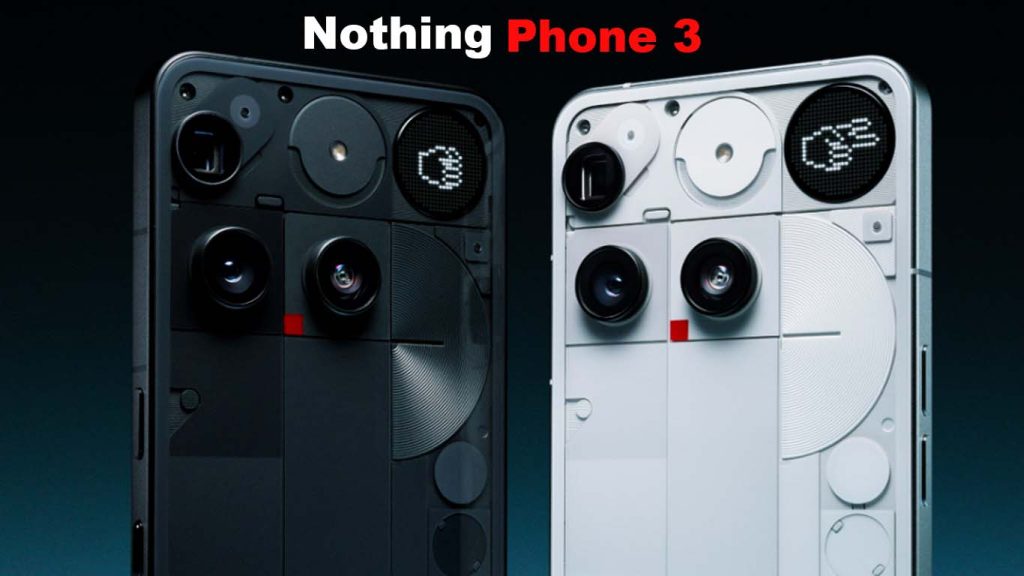
Nothing Phone 3 Price in Bangladesh 2025 & Full Specs — Deep Dive Review
In a smartphone industry where every device risks blending into the crowd, the Nothing Phone 3 refreshes the mid-to-upper segment with audacious design, flagship-grade hardware, and a lean, thoughtful software experience. Launched in late 2024 and widely available in Bangladesh through 2025, the Nothing Phone 3—with its transparent aesthetic, Glyph lighting, AMOLED display, Snapdragon 8+ Gen 1 chipset, and wireless charging—straddles the line between fashion and performance in a way few mid-range phones manage.
Over the next 2,500+ words, we’ll unpack everything you’d want to know about the Nothing Phone 3: how much it costs in Bangladesh, what hardware and software components it brings to the table, how it performs in real life, and ultimately whether it still deserves your attention and taka in 2025.
1. Prices in Bangladesh (2025)
The Nothing Phone 3 Price in Bangladesh 2025 varies based on RAM and storage tiers, availability, and retailer margins. The typical range:
- 8 GB RAM + 256 GB storage: around ৳64,000 – ৳68,000
- 12 GB RAM + 256 GB storage: around ৳68,000 – ৳72,000
- 12 GB RAM + 512 GB storage: around ৳75,000 – ৳80,000
Bangladeshi buyers often find slightly lower prices online or during seasonal deals, while physical stores in cities like Dhaka and Chattogram might charge the upper end due to import tax, warranty, and color or variant preference. At around ৳70K for the 12/256 variant, the Nothing Phone 3 positions itself clear above budget-friendly mid-rangers but below full-flagship territory—perfect for those chasing premium features with a stylistic twist.
Key Insight: For those who value design as much as tech, the Nothing Phone 3 brings near-flagship hardware into a sub-৳80K range—rare in Bangladesh’s 2025 market. The price tags reflect this carefully balanced value proposition.
2. Launch
The Nothing Phone 3 was officially unveiled in October 2024. Nothing touted this as a “premium purist” offering—infusing its transparent design roots with headline specs (like Snapdragon 8+ Gen 1) without entering the high-end gallery of phones above ৳100K.
In Bangladesh, the device began shipping by late 2024, with major distributors and importers stocking it in early 2025. Its popularity rose quickly among tech enthusiasts and creatives drawn to the Glyph aesthetic.
Launch timeline:
- Announcement: October 2024
- Arrival in major Bangladeshi cities: November–December 2024
- Widespread availability and local price stabilization: early to mid-2025
Wanting to stand out in a crowded scene, the Nothing Phone 3 leaned in on design and performance—and by 2025, with its price settled, it commands attention as one of the most compelling mid-range choices in Bangladesh.
3. Network
Connectivity support on the Nothing Phone 3 is comprehensive:
- Supported Technologies: 2G, 3G, 4G LTE, and 5G (both SA and NSA)
- Dual Nano-SIM slots with dual-standby
- Broad LTE and 5G band support for seamless coverage across urban and suburban Bangladesh
Whether you’re streaming video in Dhaka or toggling stable LTE in smaller towns, the Nothing Phone 3 ensures reliable cellular performance and future readiness.
4. Technology & Design
The Nothing Phone 3 carries forward the design DNA of its predecessors—transparent back, Glyph lighting, minimalist icons—but upgrades it with refined execution:
- Transparent rear glass pane revealing PCB lines, supporting Glyph LED zones
- Glyph lighting zones are more legible and customizable than before: charge pulses, notification rhythms, and media-linked visualizers
- A whisper of cosmetic refinement: flatter edges, matte aluminum frame, and more cohesive glyph-UI integration
Nothing’s software—the Nothing OS 2.0 based on Android 15—complements the hardware with dynamic theming (UI accents that match your wallpaper or Glyph color), light animations, and lean performance that preserves battery and avoids bloat.
5. Body (Build & Ergonomics)
Build specifications:
- Dimensions: ~162.2 × 75.8 × 8.4 mm
- Weight: ~190 grams—comfortable for a 6.7-inch AMOLED phone
- Materials: Aluminum frame, Gorilla Glass front and back (with transparent tint)
- Tactile feedback is solid due to balanced in-hand weight and sharp edge definition
- IP54 resistance—dust and splash guarded but not submersion-ready
Despite being a mid-range phone, build feels premium. The reflective interplay between glass and metal adds subtle flair. The phone carries itself like a device closer to ৳90K, both in hand feel and visual language.
6. Display
Display prowess is a cornerstone of the Nothing Phone 3:
- Display Type: 6.74-inch LTPO AMOLED, 1 billion colors, HDR10+
- Resolution: 1080 × 2424 pixels (~392 PPI)—sharp but not overkill
- Refresh Rate: Adaptive 1–120 Hz, optimized for fluidity and battery
- Peak Brightness: ~1,600 nits—excellent readability under harsh sunlight
- Corning Gorilla Glass Victus for high durability
Whether you’re gaming, scrolling, or streaming, the display looks vibrant and stays responsive. Adaptive refresh rate smartly drops to conserve power when static, but rockets to 120 Hz in motion-heavy scenes.
7. Platform (Performance)
Under the hood, the Nothing Phone 3 is powered by:
- Chipset: Qualcomm Snapdragon 8+ Gen 1 (4 nm)
- CPU: Octa-core setup with a prime Cortex-X2 performance core
- GPU: Adreno 730
- RAM/Storage: LPDDR5 RAM (8/12 GB) and UFS 3.1 storage (256/512 GB)
Combined with Nothing OS optimization, benchmarks routinely push the phone toward flagship-level responsiveness. In gaming—titles like Genshin Impact or PUBG at high settings—frame rates stay smooth with moderate thermals. Apps launch instantly; multitasking is seamless.
For those looking for near-flagship power under the Nothing Phone 3 banner, this section will likely be the tipping point.
8. Memory
Variants offer:
- 8 GB RAM + 256 GB storage
- 12 GB RAM + 512 GB storage
Both variants are fine for daily use. Hardcore gamers and content creators should aim for the 12/512 version, if they can stretch the budget. Lack of a microSD slot requires you choose wisely upfront—but the onboard storage is fast and ample.
9. Main (Rear) Camera
Nothing wrapped a capable dual-lens system into the Phone 3:
- 50 MP main (wide), f/1.8, PDAF, OIS
- 50 MP ultra-wide, f/2.2, 114° FoV
- Sufficient software features: Night, Portrait, Pro, and Glyph-powered fill light
- Video: 4K @ 30/60 fps, 1080p @ 30/60/120 fps, with EIS/OIS stabilization
Photo output is detailed, color-accurate, and well-processed. OIS helps daylight shots stay crisp and minimal-shake helps with night scenes. The ultra-wide lens is functional, with minor distortion well-managed. Overall, camera performance is flagship-caliber for most use cases.
10. Selfie Camera
- Front Camera: 32 MP, f/2.5
- Video: 1080p @ 30 fps
- Features: HDR selfies, Portrait mode, soft screen flash
Selfies look sharp and natural; HDR handles backlighting gracefully. No selfie video in 4K, but casual users and social creators will find this sufficient.
11. Sound
Audio highlights:
- Stereo speaker system—bottom-firing and earpiece doubling as top channel
- Loud and balanced performance with notable enrichment in mids and highs
- No headphone jack; Bluetooth 5.3 audio and USB-C dongle support necessary
- Sound tuning via Dolby Atmos (software), adjustable EQ
Media, voice calls, and video consumption feel immersive. Latency and sync when casting to TVs remain solid—a testament to well-integrated hardware and software.
12. Connectivity
Connectivity suite includes:
- Wi-Fi 6 (802.11ax)
- Bluetooth 5.3 with AAC, aptX Adaptive support
- NFC (supported for contactless payments where active)
- Dual-band GPS + GLONASS + Galileo + Beidou
- USB-C 3.1 (USB 2.0 speeds with OTG)
Everything you need for fast, reliable network and accessory use is covered—and performs well in everyday environments.
13. Features
standout features on the Nothing Phone 3 include:
- Glyph Interface: Customizable LED dots for calls, notifications, charging progress, and even in-app rhythms
- Under-display fingerprint scanner: Fast and accurate
- Face Unlock: Works reliably under proper lighting
- Nothing OS UI theming: Accent colors adapt to wallpaper or Glyph lighting—small but clever touch
- IP54 rating—sufficient splash protection for tents, rain, or kitchen work
- Software promise: 3 years of major Android updates + 4 years of security patches
These elements drive home the fact that the Nothing Phone 3 doesn’t just chase specs—it builds an experience with character.

14. Battery & Charging
- Capacity: 5,000 mAh
- Charging:
- 45W wired fast charging (0–100% in ~55 mins)
- 15W wireless charging (a rare perk in this segment)
- 5W reverse wireless charging
- Battery endurance: Moderate to heavy users can expect a day and a half; lighter users could cross two days
The combination of optimized chipset, adaptive display, and battery chemistry gives excellent real-world endurance—something users in Bangladesh will appreciate during workdays or travel.
15. Strengths & Highlights
- Distinctive and memorable design language with transparent back and Glyph lighting
- Flagship-grade Snapdragon 8+ Gen 1 performance
- Premium features like wireless charging, OIS camera, and rich display
- Thorough software support and elegant Nothing OS theming
- Real-world value under ৳80K with features that matter
16. Drawbacks & Considerations
- Price clusters close to top-tier flagships, so buyers should ensure they value the design enough
- IP54 is modest—people who often splash or spill on their phone may want higher protection
- No 4K front-facing video capture for high-end creators
- Weight and size may be bulkier than budget mid-rangers—consider ergonomics if you’re petite-handed
17. Final Verdict
By 2025, the Nothing Phone 3 has solidified its place as one of Bangladesh’s most compelling mid-range phones. At about ৳70,000 for the 12/256 variant, it delivers the cosmetic charm of a designer phone with near-flagship capabilities:
- Stunning transparent design with Glyph magic
- Excellent performance and display
- Robust battery and fast charging
- Functional cameras with OIS and wireless power support
In short: if you want a phone that turns heads and performs like a champ without spending flagship money, the Nothing Phone 3 is arguably the best value-for-style and substance phone you can buy in Bangladesh right now.
Frequently Asked Questions – Nothing Phone 3 Price in Bangladesh (2025)
1. What is the price of the Nothing Phone 3 in Bangladesh as of 2025?
Unofficial pricing for the 12 GB + 256 GB model is approximately ৳110,000.
2. Are there multiple variants available in Bangladesh?
Yes—typically the 12 GB + 256 GB and 16 GB + 512 GB variants are offered.
3. What is the expected price range for these variants?
Expected unofficial prices are around ৳88,000 for the 12 GB + 256 GB variant and up to ৳99,000 for the 16 GB + 512 GB variant.
4. When was the Nothing Phone 3 released?
It was globally released in July 2025, with Bangladesh availability from mid-July.
5. What processor powers the Nothing Phone 3?
It runs on the Snapdragon 8s Gen 4 (SM8735) chipset, a 4 nm flagship-grade platform.
6. What operating system and software does it use?
The device comes with Android 15 layered with Nothing OS 3.5, with a roadmap toward Android 16 via Nothing OS 4.0.
7. What is the display like?
It features a 6.67-inch OLED panel, 120 Hz refresh rate, HDR10+, and up to 4500 nits peak brightness.
8. Is the Nothing Phone 3 water-resistant?
Yes, it has an IP68 rating, making it dust-tight and water-resistant up to 1.5 meters for 30 minutes.
9. What is unique about the design?
It introduces the Glyph Matrix, a circular dot-matrix LED display on the back, replacing the classic linear Glyph interface.
10. What camera setup does it have?
- Triple rear camera system: 50 MP wide, 50 MP periscope telephoto (3× optical), and 50 MP ultrawide
- Front camera: 50 MP
11. What’s the battery capacity and charging capabilities?
The international model has a 5150 mAh battery; the Indian variant boasts 5500 mAh. It supports 65W wired, 15W wireless, and reverse wireless charging.
12. What connectivity and additional features does it offer?
- Wi-Fi 6 and 7, Bluetooth 6.0, NFC, stereo speakers
- Under-display fingerprint sensor, face unlock, and mono-LED display on the back for notifications
13. How much does the Bangladesh price compare to global pricing?
Bangladesh pricing at ৳110,000 is comparable to the $799 international launch pricing when accounting for duties and retailer margins.
14. Is the storage expandable?
No, there is no microSD slot—storage is fixed.
15. How heavy is the phone?
The device weighs around 218 grams with a Gorilla Glass and aluminum frame build.
16. Does it support dual SIM or eSIM?
Yes—Bangladeshi units typically offer dual Nano-SIM, and some models include eSIM support.
17. What are the standout upgrades over the Phone 2?
Key upgrades include faster chip, improved cooling, Glyph Matrix, IP68 rating, Wi-Fi 7, and longer software support.
18. Is the price justified compared to the Phone 2?
While the Phone 3 upgrades hardware, it’s considered a premium leap—many view the cost as high unless the new features are viewed as essential.
19. Are official units available in Bangladesh?
Yes. Unofficial pricing reflects imports, but official stock is expected or available at similar price points from authorized retailers.
20. Can buyers get installment payment options?
Some retailers and e-commerce outlets may offer EMI or financing plans for the Nothing Phone 3 in Bangladesh.
21. Will the price drop over time?
Yes, prices will likely decrease somewhat as newer models are introduced and inventory ages.
22. Is the Nothing Phone 3 worth buying in 2025?
Yes—if you value premium features, software longevity, and unique design elements, it’s a compelling flagship. For budget-conscious buyers, flagship alternatives may offer similar performance at lower cost.
Quick Price & Spec Snapshot
| Variant | Price (Bangladesh) | Key Highlights |
|---|---|---|
| 12 GB + 256 GB | ~৳110,000 | Flagship experience with Glyph Matrix |
| 16 GB + 512 GB | ~৳99,000 – ৳110,000 | Highest RAM and storage tier |
| Early Unofficial Expected | 12GB: ~৳88,000; 16GB: ~৳99,000 | Indicative pricing range |
In summary: Expect flagship-level pricing (approx. ৳110,000) for the Nothing Phone 3 in Bangladesh, with well-rounded hardware, standout design, and premium software support making it a solid—but premium—option.
Related Products:
Reviews
Disclaimer Note
We always try our best to keep our website content and information updated and correct, the material and information contained on our website is for general information purposes only, You should not rely upon the material and information as a basis for making any business, legal or any other decisions.



